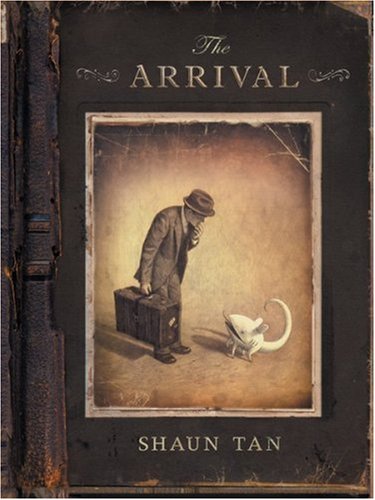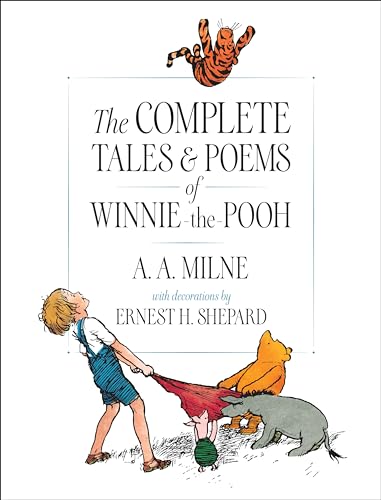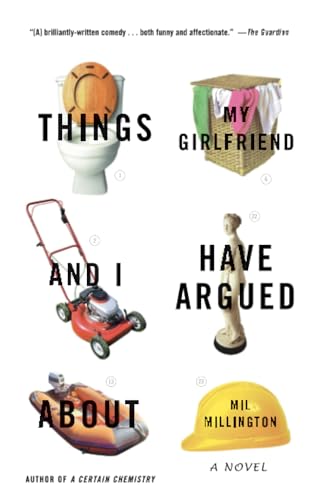FatherReader here. While I share a degree of MotherReader’s enthusiasm for children’s literature — and have been thrilled to make a few friends in the kidlit world — my bailiwick is more in the area of
film (as both a viewer and a successful independent
filmmaker, so long as you aren’t too strict in defining “successful”). In any case, it’s rare that I feel I have any particular insight to offer here (and after today’s entry, you may very well concur). But she thought this might be an opportunity to provide a little crossover commentary — specifically, some thoughts on Tim Burton’s latest,
Alice in Wonderland.
If ever there were a pair of creative minds well suited to work in conjunction, they would be Lewis Carroll and Tim Burton. That’s not to say that Burton’s film is by any stretch a “faithful adaptation” of Carroll’s work, but more that Burton’s sensibility is uniquely appropriate to interpreting Carroll’s off-kilter imaginings. The film (which is positioned as more a continuation of the Alice stories than a direct adaptation) does fall prey to some of the same flaws that have afflicted earlier works — treating
Alice’s Adventures in Wonderland and Through the Looking-Glass, and What Alice Found There as though they were a single narrative, combining the Queen of Hearts and the Red Queen into an amalgam character, and so on. In fact, one could argue that it owes more to past adaptations than to the original books — though from a filmmaker’s perspective, there may be more to be gained by tapping into our collective memory of the stories than by adhering closely to the stories themselves. Which goes to illustrate the overriding truth of filmmaking (and the bane of literary purists everywhere): For good or ill, filmmaking is a director’s medium, not a writer’s.
There are those who love Burton’s style, and those who abhor it, though for the most part Burton doesn’t often
polarize audiences; many find his films enjoyable but are neither enthused nor repulsed. (MR probably falls somewhere in the middle of the latter group — though she was clear that she had no desire to see
Alice; while she enjoys the occasional
weird-ass picture book, she’s a little more conventional in her movie choices.) I lean toward the fan side of the equation, but several of his films I find merely entertaining. I thought
Beetlejuice and
Edward Scissorhands were brilliant, but
Charlie and the Chocolate Factory somewhat less inspiring. I loved his
Batman films at the time of their release (there are no doubt blackmail-worthy photos floating around somewhere), but find they don’t quite hold up over time. (We will studiously avoid any mention
Planet of the Apes, which bears no sign of being a Tim Burton film at all.)
But Burton is certainly a
visionary — in the sense that all of his films (with the exception of the film-that-shall-not-be-mentioned) bear his indelible imprint. And in this regard, Carroll’s work would seem to be an ideal jumping-off point for Burton’s particular brand of lunacy. In fact, one can imagine Burton embracing the maxim “We’re all mad here” as his own personal mantra. So the question — from a filmmaker’s perspective — becomes not whether this outing brings
Carroll’s vision to the screen, but whether the inspiration of Carroll’s writing serves
Burton’s vision. (That said, this audience being a more literarily-minded group, I certainly welcome your thoughts and counterarguments in the comments.)
In that regard, I would answer affirmatively, arguing that
Alice stands along with
Edward Scissorhands as absolutely emblematic of Burton’s oeuvre. While it may not be possible to translate Carroll’s linguistic brilliance into any other medium, Burton uses that language to at least emulate the feeling of being in a dream world — where things make a vague sort of sense, but remain just bizarre enough to be confusing. Criticisms that Burton takes what
shouldn’t make sense and provides
too coherent a narrative (providing very clear objectives for the characters, interweaving the “Jabberwocky” poem more explicitly into the main story arc, and the like) may have some merit, but I for one found myself suitably disoriented throughout.
Unlike writing (editorial assistance aside), filmmaking is a collaborative medium, though in this case the director’s hand remains evident across the board. The casting — in terms of both the selection of appropriate actors and the consistent direction of performances — is pure Burton. Johnny Depp is delightfully batty as the Mad Hatter, Mia Wasikowska provides an ideal blend of youthful innocence and post-adolescent defiance to Alice, and Helena Bonham-Carter positively steals the show as the Red Queen/Queen of Hearts — and that’s saying nothing about the stellar turns by Stephen Fry and Alan Rickman as the Cheshire Cat and Blue Caterpillar respectively (of all the performances, I felt only Anne Hathaway’s as the White Queen fell a bit flat). The exaggerated design — while certainly paying homage to John Tenniel’s classic illustration (and Disney’s animated work) — is straight out of Burton’s gloriously askew imagination. And the story — aforementioned coherence notwithstanding — very effectively illustrates Burton’s themes on balancing responsibility and individual choice (and the benefits of a healthy dose of madness).
In all, I found the film eminently watchable, and imbued with far greater intelligence — in no small part thanks to the genius of the source material — than most popular entertainment. The 3D effects are not merely a gimmick (though there are certainly a few “3D shot” moments), but serve the larger goal of immersing the viewer in the dream-like world of Wonderland (or “Underland,” as it’s more properly dubbed in the film). And though it does take substantial liberties with Carroll’s stories, it hardly appears to desecrate the spirit of the originals.
But let’s not leave my word as the final determination — chime in and add your own thoughts. If we get a particularly lively conversation out of it, I may tackle Guy Richie’s more explicitly revisionist
Sherlock Holmes.
Links to material on Amazon.com contained within this post may be affiliate links for the Amazon Associates program, for which this site may receive a referral fee.
 The Wimpy Kid Movie Diary, by Jeff Kinney, talks about the process of making a movie, starting with the earliest discussions, to the casting, and through the entire filmmaking process. While Kinney comes in with little quips and lots of cartoons, overall the book is more interesting than funny. The best thing, from my perspective is the main point: It’s hard to make a movie. Being involved with our short films so much, it drives me crazy when people dismiss the hours of work it takes to make even a short film. Most people just don’t get it.
The Wimpy Kid Movie Diary, by Jeff Kinney, talks about the process of making a movie, starting with the earliest discussions, to the casting, and through the entire filmmaking process. While Kinney comes in with little quips and lots of cartoons, overall the book is more interesting than funny. The best thing, from my perspective is the main point: It’s hard to make a movie. Being involved with our short films so much, it drives me crazy when people dismiss the hours of work it takes to make even a short film. Most people just don’t get it.





























